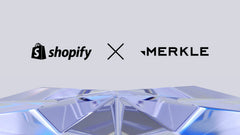
TikTok's Bold Move: The Disruption of Indonesia's E-Commerce Landscape Through the Tokopedia Merger
Table of Contents
- Key Highlights:
- Introduction
- The Acquisition: A Strategic Necessity
- The Seller's Perspective
- Regulatory Challenges and Scrutiny
- The Impact on Consumer Behavior
- Challenges of Integration
- The Future of E-Commerce in Indonesia
- FAQ
Key Highlights:
- TikTok's acquisition of Tokopedia has significantly disrupted Indonesia's $65 billion e-commerce market, leading to layoffs and diminished seller autonomy.
- The merger has prompted sellers to adapt to new marketing strategies, such as influencer-style promotions, which many find unmanageable.
- Regulatory scrutiny intensifies as concerns grow over potential monopolistic practices and the merger's impact on small and medium-sized businesses.
Introduction
The digital marketplace in Indonesia is undergoing a seismic shift as TikTok, a platform synonymous with short-form video content, ventures deeper into the realm of e-commerce through its recent acquisition of Tokopedia, one of the nation's leading online retail platforms. This merger is not merely a business transaction; it represents a strategic pivot in TikTok's approach to complying with local regulations while expanding its market presence. However, the repercussions of this move have reverberated throughout the industry, affecting sellers, consumers, and regulatory bodies alike. As TikTok seeks to integrate its services with Tokopedia, it faces mounting challenges, including significant layoffs, retailer dissatisfaction, and scrutiny from government watchdogs.
The Acquisition: A Strategic Necessity
In a bid to align with Indonesia’s stringent laws that prohibit social media companies from directly engaging in e-commerce, ByteDance, TikTok's parent company, acquired a majority stake in Tokopedia for an impressive $840 million. This strategic acquisition was designed to navigate the complex regulatory landscape while bolstering TikTok's influence in the region. Since entering the Indonesian market in 2021, TikTok has rapidly amassed a following of 106 million users, making it the second-largest market for the platform after the U.S. However, this rapid growth has not come without its complications.
TikTok Shop: A New Era of E-Commerce
Post-acquisition, TikTok rebranded Tokopedia's e-commerce interface as TikTok Shop by Tokopedia, merging their offerings into a single platform. The intention was to create a seamless shopping experience that capitalizes on the growing trend of social commerce, where consumers are increasingly influenced by social media interactions. However, this integration has been anything but smooth.
Disruption in the Marketplace
Since the merger, the Indonesian e-commerce landscape has faced substantial upheavals. Reports indicate that TikTok has laid off approximately 2,500 employees as part of the integration process, a move that has sent shockwaves through the industry. Sellers on Tokopedia have expressed frustration over losing control over their product listings and marketing strategies. Traditionally, sellers could list products with simple photos and descriptions, but TikTok's new approach mandates the creation of engaging video content, a significant shift that many sellers are unprepared for.
"I’m not planning to make videos or to do livestream [to promote my products]," said Helmin, a seller from Jakarta. Frustrated by the new requirements, she has redirected her efforts to competing platforms like Shopee, which maintain a more traditional e-commerce model without the added pressure of video content.
The Seller's Perspective
The experiences of sellers like Helmin and Dedy, another retailer who reported a staggering 50% drop in revenue following the integration, illuminate the challenges faced by those attempting to adapt. Dedy, who has been a Tokopedia seller since 2017, suspects that TikTok's algorithm is impacting his visibility and sales performance. The feedback from sellers highlights a broader trend in the e-commerce industry—one where the integration of social media and retail is not always beneficial for merchants.
The Rise of Alternative Platforms
As a result of dissatisfaction with TikTok Shop, many sellers are exploring alternative platforms. Toco, a lesser-known marketplace that promises zero fees for life, is gaining traction among sellers who feel stifled by TikTok's new policies. This trend underscores a critical point: sellers are increasingly prioritizing platforms that offer greater autonomy and lower operational costs.
Regulatory Challenges and Scrutiny
The TikTok-Tokopedia merger has not only drawn the ire of sellers but has also attracted the attention of regulatory bodies. Indonesia's antitrust watchdog has raised concerns about the potential for monopolistic practices stemming from the merger. Specifically, there are apprehensions regarding "tying" and "bundling" practices that could force sellers to use TikTok's payment and delivery services, further constraining their operational freedom.
Data Privacy Concerns
In an environment where data privacy is a paramount concern, TikTok's challenges are compounded by ongoing scrutiny in the U.S. over data handling violations. The Indonesian government’s ban on TikTok in October 2023, aimed at protecting local small and medium-sized enterprises, is indicative of the broader geopolitical tensions affecting the platform's operations. To sidestep this ban, TikTok's partnership with Tokopedia serves as a critical lifeline, showcasing the complexities of navigating local regulations while attempting to maintain a global presence.
The Impact on Consumer Behavior
Despite the challenges faced by sellers, the merger has introduced a new dynamic in consumer behavior. TikTok's model of impulse buying, driven by engaging video content and influencer marketing, contrasts sharply with the established practices of Indonesian e-commerce, where low-impulse shopping has historically dominated. Simon Torring, co-founder of market research firm Cube Asia, notes that at least 30% of Tokopedia's sales originated from low-impulse shopping, a segment that may not align with TikTok's rapid-fire promotional strategies.
The Role of Social Media in Shopping
Indonesia boasts one of the highest social media engagement rates globally, with users averaging three hours per day on platforms. This high engagement level presents a unique opportunity for e-commerce platforms like TikTok, which thrive on data-driven marketing techniques. Wenkai Zhou, an associate professor of marketing at Rollins College, emphasizes that TikTok's integration of social media and e-commerce facilitates real-time optimization of consumer interactions, enhancing the platform's addictive nature.
Challenges of Integration
While TikTok's integration of Tokopedia aims to streamline operations and enhance user experience, it has inadvertently led to significant challenges for sellers. Reports indicate that many merchants are being pressured to integrate their Tokopedia dashboards with TikTok's, despite the marketing of this transition as voluntary. Sellers who have complied have noted declines in site visits and profitability, leading to widespread discontent.
Merchants' Struggles with New Systems
The operational complexities introduced by the merger have left many sellers feeling overwhelmed. There are claims that TikTok's algorithm is favoring certain listings over others, leading to visibility disparities among sellers. Additionally, the integration has resulted in higher fees and advertising costs, further squeezing profit margins. Dedy's experience reflects a broader sentiment among merchants who feel that the platform's new structure has not been designed with their best interests in mind.
The Future of E-Commerce in Indonesia
As TikTok navigates the challenges posed by its merger with Tokopedia, the future of e-commerce in Indonesia remains uncertain. The platform is at a crossroads, balancing the need for compliance with local regulations while striving to offer a competitive product to sellers and consumers alike. The long-term viability of TikTok Shop will depend on its ability to address seller concerns, enhance user experience, and maintain compliance with regulatory standards.
The Potential for Growth
Despite the current turmoil, there is potential for growth within Indonesia's e-commerce sector. The market itself is vast, with a projected value of $65 billion, and the high engagement rates among social media users present a significant opportunity for platforms that can strike the right balance between social interaction and commercial viability. TikTok's success in Indonesia will hinge on its ability to adapt to the unique needs of the market while providing value to both consumers and sellers.
FAQ
1. What is TikTok's strategy in Indonesia?
TikTok's strategy in Indonesia involves leveraging its acquisition of Tokopedia to create a unified platform that integrates social media and e-commerce, aiming to enhance user engagement and increase market share.
2. How has the acquisition of Tokopedia affected sellers?
The acquisition has led to significant changes in operational practices, requiring sellers to produce video content for marketing, which many find challenging. Additionally, there have been reports of revenue declines and layoffs among employees.
3. What are the regulatory concerns surrounding the TikTok-Tokopedia merger?
Regulatory bodies have raised concerns about potential monopolistic practices, including predatory pricing and forced integration of payment services, which could undermine competition in the e-commerce market.
4. How do consumer behaviors differ between TikTok and traditional e-commerce platforms?
TikTok promotes high-impulse purchasing driven by engaging video content, while traditional platforms like Tokopedia have historically relied on low-impulse shopping, where consumers plan purchases in advance.
5. What are the prospects for e-commerce in Indonesia?
Despite current challenges, the Indonesian e-commerce market presents significant growth potential, driven by high social media engagement and an expanding digital economy. The future will depend on how platforms like TikTok adapt to the needs of sellers and consumers.
Vylepšete svůj e-commerce s našimi týdenními poznatky a aktualizacemi!
Zůstaňte v souladu s tím, co se děje ve světě obchodu
E-mailová adresa
Vybráno pro Vás

14 July 2025 / Blog
Morrisons Enhances Loyalty Program with Exclusive Deliveroo Discounts
Přečtěte si více
14 July 2025 / Blog
Merkle and Shopify Join Forces: A New Era in Digital Commerce Transformation
Přečtěte si více


